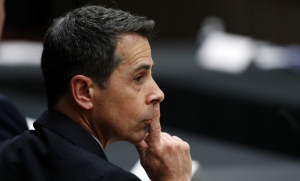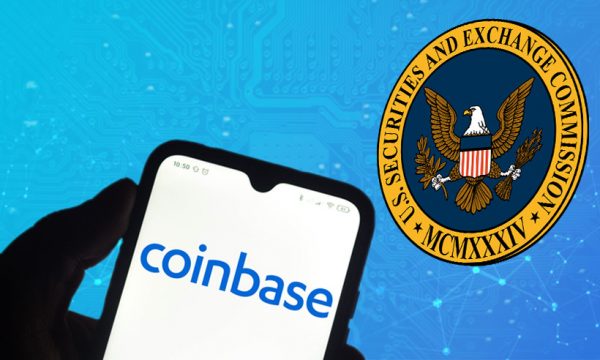Stablecoins are often touted as a comparatively more stable, less volatile variant of cryptocurrency due to their value being tied to tangible assets. Despite this, a report by Bloomberg evidences an upcoming inquiry that could result in a crackdown from U.S. federal agencies — including the FSOC and Treasury Department. This inquiry is concerned with the lack of regulation surrounding digital money, and seeks to address whether to take measures that protect the financial system. Depending on the results, this inquiry could have dramatic consequences for the cryptocurrency industry, which relies heavily on stablecoins to facilitate the entry of fiat currency into market and for investors who use them as safe haven in times of market turmoil.
The latest regulatory spectre comes after an onerous 2021 for crypto companies operating in the U.S., in which the SEC, CFTC, and even its Senate has taken shots at regulating cryptocurrencies and the companies that create them.
In fact, leading crypto publication CoinDesk recently contended that the question now shifts from “How will the U.S. government regulate stablecoins?” to “What will stablecoin issuers have to do?”
Treasury will soon debate an FSOC investigation into stablecoins
Crypto enthusiasts and investors will be relieved to hear that the US federal government is not planning to ban the use of cryptocurrencies, if recent comments by SEC chairman Gary Gensler are anything to go by. On the other hand, they may be upset to hear that stablecoins may soon be subject to U.S federal standards.
A recent Bloomberg article announced that the U.S Treasury Department (among several other federal agencies) was debating launching a Financial Stability Oversight Council (FSOC) examination into stablecoins including Tether and it has now been added to the agenda of its next meeting.
As the FSOC has the authority to declare activities or companies — including the pegging of digital assets to tangible assets — a danger to the financial system, stablecoins may face stiff rules and monitoring by regulators.
The last ten years have seen crypto rise from an unknown project to a $2 trillion dollar industry. Through much of this period governments around the world have largely failed to regulate cryptocurrency. While there were regulations put in place, large-scale, sweeping regulations never came to be. This may be changing.
Indeed, Washington regulators are preparing a formal review of cryptocurrencies, and stablecoins in particular, that could create unprecedented challenges to their adoption. And they mean business, as the SEC’s subpoena of Circle Financial, the backer of USDC, supposed to be the most compliant stablecoin out there, last week proves.
Why Stablecoins Matter in Crypto
Stablecoins, such as Tether, are commonly considered safer than regular cryptocurrencies due to their value being pegged to less volatile, often tangible assets. Tether, a currency that exploded in popularity in 2021, is tied to the US dollar. This means that, unlike Bitcoin, Tether does not spike and drop in price violently. It is very similar in concept to countries that adopt the gold-standard or silver standard with their currencies.
Stablecoins are most commonly used by crypto investors to manage trades between different digital assets. The use of stablecoins pegged to the dollar has grown from US 29 billion to US 125 billion in 2021 alone. As their value is tied to the dollar, experts argue that they could revolutionize digital transactions.
Why Target Stablecoins?
The very attributes that make stablecoins desirable have drawn the attention of the US government. In simple terms, the government is worried that the assets that allegedly support stablecoins may not exist, and that this may cause a rush on the banks, and thus destabilize the financial system.
One such example is the Hong Kong based cryptocurrency Tether, who was recently again investigated for criminal misconduct in New York. Tether claimed to stabilize their funds by holding extensive corporate debt, and that all of their transactions were supported by US dollars. An investigation by New York based regulators in 2019 contradicted this claim. Tether admitted no wrongdoing, but now released quarterly business reports.
U.S government regulators fear that this may only be the tip of the iceberg and are acting accordingly.
What Regulations Could Result from the Inquiry?
The inquiry is not expected to produce a final decision until December 2021, but some industry analysts have predicted several potential consequences. Most agree that there will be a move in favor of a “Oversight Council” review. Such a review could produce the following consequences:
- Many cryptocurrencies may be forced to change their business models, or cease to operate
- The U.S may adopt a 1933 banking law to regulate stablecoins as a deposit
- If the FSOC deems stablecoins as a threat they will then be tasked with creating laws that regulate this threat
- The eventual creation of an official US cryptocurrency tied to USD (an event that could render most stablecoins obsolete)
Conclusion
Cryptocurrency proponents are accustomed to their operations being subject to a certain degree of unpredictability, but news of this recent inquiry is certainly making some of the most die-hard proponents sweat. Despite this, increased legislation regarding cryptocurrency could potentially pave the way for its increased adoption and large-scale acceptance. As of right now, the industry can only wait and see.


